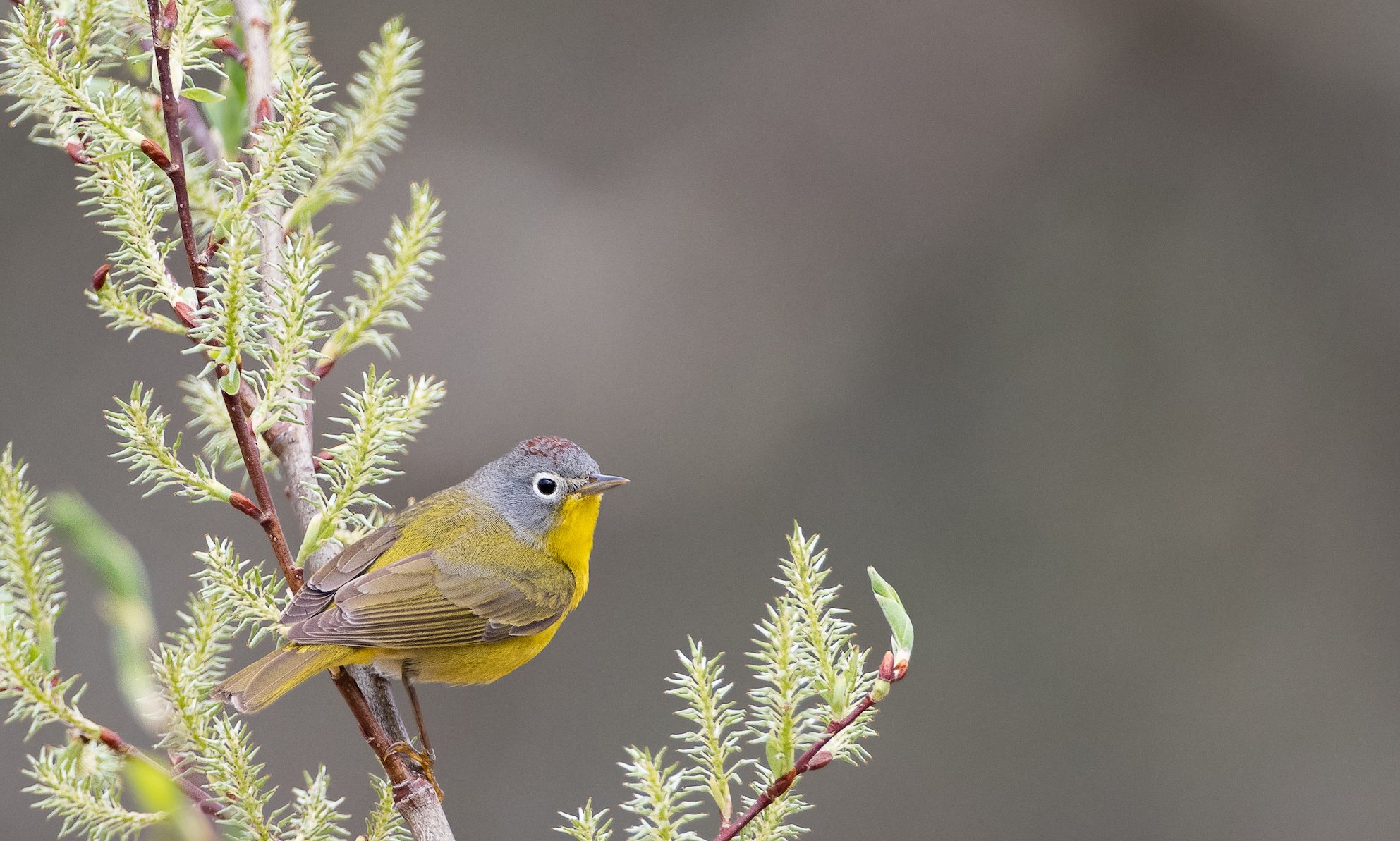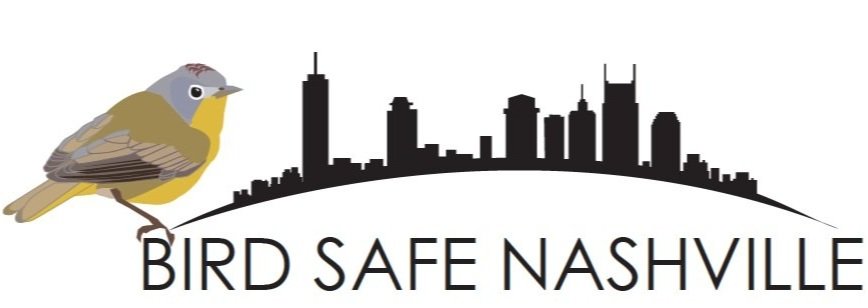
Bird Safe Nashville -Protecting Music City’s Songbirds, both night and day.
Photograph of Nashville Warbler by Graham Gerdeman https://www.grahamgerdeman.com/index
Take the pledge to participate in Lights Out Nashville to protect birds during migration!
FAQ about proposed Cheekwood access road through Warner Park
Building a new road in Warner Parks to benefit Cheekwood has many negative impacts – from using public tax dollars and lands to benefit a private organization to the numerous negative ecological impacts.
The information provided below is based on Bird Safe Nashville’s current understanding
What is the background? Metro Planning was tasked to develop a Belle Meade Highlands Design and Mobility Implementation Plan to improve mobility, safety, and neighborhood character in the Belle Meade Highlands neighborhood. The study explored ways to reduce traffic impact in the neighborhood and to address overflow parking issues from increased Cheekwood visitor use.
What is the issue? While several options were proposed for an access road for Cheekwood, the Planning Commission amended the proposal in January to prioritize shared use access. Two of the proposed options were for a new road that would include park property at the northern end of Percy Warner Park.
Why does Bird Safe Nashville oppose any proposed options that would construct a road in Warner Park? A new road in Warner Park would require clearing protected forest and fragmenting a section of the park. Decades of scientific research have shown fragmenting forested areas with roads is detrimental to ecosystem health. Roads allow an avenue for non-native, invasive species to take hold, increase noise pollution, increase direct wildlife fatalities, and create a literal roadblock for native amphibians and reptiles such as salamanders where the road acts as a physical barrier to their natural movements.
What are other benefits to not creating a new road in Warner Parks? Impacting public park land and removing trees for a new road does not coincide with the city’s sustainability initiatives. Urban forests help to slow and store stormwater, reduce erosion and flooding, and improve air quality. While Nashville has 56% tree canopy, the most recent Urban Tree Canopy study showed we have lost tree canopy which is critical for public health and environmental resiliency.
Is habitat destruction and fragmentation from roads bad for birds? Yes. Research on birds and road fragmentation has shown roads allow an avenue for increased predation on forest birds. For example, studies have shown Wood Thrushes, a migratory bird that breeds in Warner Parks and is listed as a species of concern in Tennessee, suffer from increased nest predation and parasitism from Brown-headed Cowbirds because of fragmentation. Urban forests are important for birds:
Urban forests provide stopover habitat for migrating birds:
Nashville is in the area of North America with the highest land cover change vulnerability, a concern for critical migratory bird stopover habitat.
Residential birds can do well in forested urban areas.
Habitat loss and fragmentation negatively impacts bird species during migration.
Urban parks are good for birds and provide a refugia because they provide habitat in otherwise inhospitable urban conditions. Continued investment in increasing and improving the ecological benefits of urban forests can be a win-win when considering the benefits to people and birds.
Many bird species need unfragmented forests for their breeding habitat.
Could a new road benefit Warner Park? The Warner Parks has 16 entrances – 7 access points off Hwy 100. Metro Parks has not identified the need for a new access point and has identified significant safety improvement needs at other access points that need to be addressed. Cheekwood will be the primary beneficiary of a new shared road. Cheekwood traffic in the neighborhood is 5 times greater than park traffic base on the study done by Kimley-Horn, the consultant hired by Metro to conduct the Belle Meade Highlands Design and Mobility Study. The study asks that Metro Parks analyze the potential benefits of a new road, but we do not know if this is in progress at the moment.
Does Bird Safe Nashville support Cheekwood? Yes, of course. Bird Safe Nashville recognizes Cheekwood’s beautiful native garden, serving as host for an annual native plant sale, and their children, school, and adult educational programs. We want Cheekwood to thrive but oppose the construction of a new Cheekwood access road that impacts Warner Parks.
What are next steps?
NDOT: Of the 6 access points off Hwy 100, NDOT is doing a more thorough analysis of 3 of those access points off Hwy 100. One of the 3 is at least partially on Warner Park property and has been identified as the preferred option.
Cheekwood: Is developing a plan to build a parking garage on Cheekwood property so they will no longer use Warner Parks for overflow parking.
Metro Parks: As part of the implementation plan, Metro Parks has been asked to assess the benefits of a new access road on Park property. We believe they should also assess any negative impacts to the cultural and environmental attributes of the park. As of 4-1–25 an assessment has not been started nor is there any public information about when and how this assessment will proceed.
Extension of MOU for Cheekwood temporary parking on Warner Park property. This has occurred.
Where can I find more information? Friends of Warner Parks has current information and links on their website at https://warnerparks.org/initiatives-and-impact/access-road-proposal/
What actions can we take? Your organization’s voice carries weight in advocating against the development of public park space to benefit private entities, whether they are for profit or non-profit.
Attend future Parks Board Meetings: Share your concerns about how the proposed road would negatively affect the diverse natural habitats of the park and wildlife that depend on those habitats as well as the recreational uses of the park. Park Board meetings are held the first Tuesday of each month.
Express your concerns to Park Board Members: Contact individual board members directly to ensure they understand the far-reaching consequences of this proposal (contact information below). Emphasize the importance of preserving the unique ecological value of Warner Parks to residents and migratory birds.
Express your concerns to the Nashville Mayors office and City Council Members: Building a new road in Warner Parks to benefit Cheekwood has many negative impacts – from using public tax dollars and lands to benefit a private organization to the numerous negative ecological impacts.
Spread Awareness Among Your Network: Share this information with fellow conservationists, bird enthusiasts, and supporters of your organization. Encourage them to attend the meeting or contact the board members.
Contact Information
Nashville Metro Parks Board Members
Cheryl Mayes: Cheryl.mayes@mnps.org
Crews Johnston: crews.johnston@cushwake.com
Edward Henley: edward@pillarsdevelopment.com
Dr. Michelle Steele: msteele@mmc.edu
William (Pete) T. Delay: pdelay@lynwoodventures.com
Susannah Scott Barnes: susannah@ashblue.com
Shan Foster: shan@fosteringhealthysolutions.com
Nashville Mayor’s office: mayor@nashville.gov
Nashville Council Members: https://www.nashville.gov/departments/council/metro-council-members

